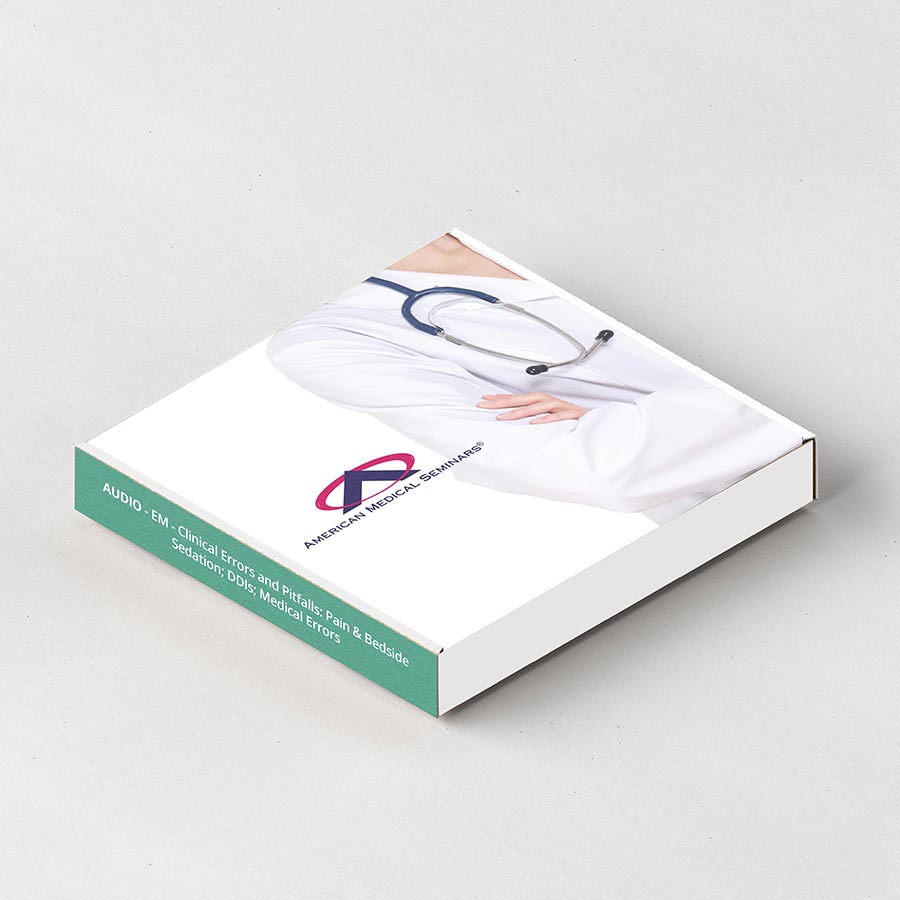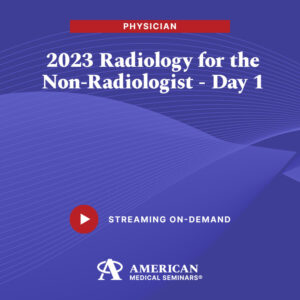Expiration Date: July 1, 2019
Title: Emergency Medicine – Clinical Errors and Pitfalls: Pain and Bedside Sedation; Drug-Drug Interactions; Medical Errors
Faculty: Kenneth H. Butler, D.O., F.A.C.E.P., F.A.A.E.M.; Michael A. Gibbs, M.D., F.A.C.E.P.; and Joel Kravitz, M.D., F.A.C.E.P., F.R.C.P.S.C.
Original Release Date: July 1, 2016 Review Date: July 1, 2017 Expiration Date: July 1, 2019
TOPIC 1: Pain and Bedside Sedation.
Upon completion of this session, the participant should be able to: COMP
- Analyze patient characteristics and clinical presentations where the most important risk is for apnea.
- Debate pulse oximeter and wave form capnography – do we need it?
- Assess and specify when sedation is an appropriate consideration for the critically ill.
TOPIC 2:Turning Error into Opportunity.
Upon completion of this session, the participant should be able to: COMP
- Specify the elements of the emergency care environment that predisposes the clinician to decision-making errors.
- Develop and integrate cognitive strategies that reduce the likelihood of error.
- Design and implement effective methods for reviewing, discussing and addressing medical errors.
TOPIC 3: Drug-Drug Interactions (DDIs).
Upon completion of this session, the participant should be able to: COMP
- Assess the scope of the problem of drug-drug interactions as it pertains to both the outpatient and emergency settings.
- Explore interactions between prescription and non-prescription medications and review their treatments.
- Review common drug-drug interactions and their complications commonly seen in the emergency room.
- The receipt for any incentive-associated purchase will designate the value of the gift card separately from the cost of the learning activity.
- This incentive may have implications on your tax reporting obligations. Any reimbursed amount must be declared as personal income for tax purposes.


